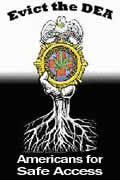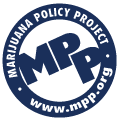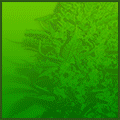|
We Update Daily!
 Custom Search Custom Search
Chris S. Kenoyer. Owner
MMJ Patient, Medical Activist,
Online Patients Advocate,
Online MMJ News Journalist
My Medical Bio
Follow Us Now On Twitter
@MedicalMMJMan
Or Follow Us Now
On Facebook
Email Us Here
olpwebs@yahoo.com
Or Email Us Securely Here
MedicalMMJMan@countermail.com
NEW 100% Encrypted Email Server
OLP’s Free MMJ News EList
Get The Latest In MMJ News
Press Contact Info
Is CBD? A Possible Cure For
Breast Cancer..? And All The Other
Many Forms & Types Of Cancer..?
Learn More About CBD Here
***************************
Advertise Here On OnlinePot
Rates As Low As $50 a Year
24/7 – 365 Days A Year Of Sales!
***********************************
Website Navigational Links
Main Start Page 2
**************************
Latest Marijuana News Reports
*********************************
Parody’s Cartoons US
Government Grown Pot,
Term Papers, School
Reports, & Thesis’s On
Marijuana & Cannabis
*********************************
Amsterdam A to Z
********************************
Canadian Marijuana Websites
*******************************
Church’s & Pot Cannabis
*****************************
Co-Ops, Clinics, Dispensary’s
*****************************
Marijuana Doctors & Clinics
****************************
Pot Cooking Recipes
****************************
Drug Testing A To Z
***************************
Pot Games
****************************
Pot Songs Video’s
****************************
100’s Of Grow Guides
***************************
Hash A- Z
***************************
Cannabis Legal Info, Drug
Lawyers, State, Federal Laws,
State & Supreme Court Rulings
**********************
POW’s Of The MMJ War!
*****************************
Other Marijuana Websites
Reciprocal Link Exchange
****************************
Medical Marijuana Studies,
Research Report’s, Medical
Cannabis Clinic Study’s
****************************
Parody’s & Cartoons
When We All Need A Good Laugh!
****************************
Avoiding Online MOM Scammers
Newly Re-Updated Info!
*****************************
The Politics Of Contraband
Medical Marijuana In The Mail?
******************************
The Hall Of Shame Section
The Online MOM Scammers
*****************************
Online MOM Providers Ads
****************************
Politicians & Voters Rights
****************************
Medical Marijuana, Strains
****************************
The OG Marijuana Strain Guide
****************************
800+ FAQ Growing Questions
****************************
Patients Spiritual Guidance,
Free Online Crisis Help Center
****************************
Online Marijuana Seed Banks
****************************
Maximum Security Section
Just Updated!
*****************************
Traveling Tips, Guides, B & B’s
****************************
Vaporizers A To Z
*****************************
Online Pot Video’s & Movies
**********************************************
Please Visit Both Of Our Sister Websites!
Maine Patients Coalition.org
The Reefer Madness Teaching Museum.org
Listen Right Here Online!
To Original 1930-1950’s
Reefer Madness Propaganda
Radio Shows And Programs
Before TV There Were
"Radio Stars"



*********************************
Legal Disclaimer
Guest Book
Translate Text or Web Page Go To:
Language Tools Google Translations
Article Submissions & News
Reports Are Always Gladly
Accepted Here.

No part of this site maybe used or
reproduced in whole or in part
without the written consent of the
Copyright Owner
www.onlinepot.org
OLP ENTERPRISES L3C
1999-2014 Copyright
© All rights reserved
OnlinePot assumes no legal liability for any products, or information or
news posted, services offered, Or
any contests or give away’s offered.
|
|
Amsterdam Mayor Says Cannabis Coffee Shops Will Remain Open
Eberhard van der Laan, Amsterdam’s mayor, has decided to allow the city’s 220 coffee shops to
continue to sell marijuana and hashish to patrons. While the practice is technically illegal, it is
tolerated by the Dutch government.
Everything You Need To Know About Amsterdam,
Main Entrance Page For Amsterdam A to Z

Michel de Groot for the International Herald Tribune
Published: November 1, 2012
The mayor, Eberhard van der Laan, told the Dutch newspaper De Volkskrant that he had made the decision after considering the unintended consequences that would arise from a ban, including a revival of black market trade. He also noted that the current system allows for the government to monitor the quality of so-called “soft” drugs and to limit access to the coffee shops to those 18 years old and over, something that would be impossible if the trade were again to become clandestine.
“The 1.5 million tourists will not say, ‘then no more marijuana,’ ” Mr. van der Laan told De Volkskrant, according to a transcript of the interview provided by his office. “They will swarm all over the city looking for drugs. This would lead to more robberies, quarrels about fake drugs, and no control of the quality of drugs on the market. Everything we have worked toward would be lost to misery.”
The Dutch have long tolerated the coffee shops, although the sale of marijuana remains technically illegal. But tolerance has come under fire, partly from concern about the criminality that surrounds the supply, which originates in places like Afghanistan, Lebanon and Morocco.
But it was a growing traffic nuisance in southern municipalities like Maastricht, where Belgians and Germans drove to buy drugs, that proved the tipping point. The Dutch government announced two years ago that sales to nonresidents would be prohibited nationwide on Jan. 1, 2013. Only Dutch residents who registered with a coffee shop would be legally allowed to go to the coffee shops, which were to be turned into members-only clubs.
The first phase of the ban, affecting only the south, took effect on May 1. The results have been mixed, with Maastricht reporting an increase in the number of street dealers, but less car traffic. A plan to require buyers to have a “weed pass” to buy soft drugs was dropped as the number of drug tourists fell sharply.
The law has always been controversial in major Dutch cities outside of the south, where officials have warned that they would lose control of the situation if the trade were driven underground.
The central government has not withdrawn the planned prohibition of drug sales to foreigners, so Michael Veling, the spokesman for the Dutch Cannabis Retailers Association, said the mayor "might have spoken out of turn to provoke a reaction in the government."
He noted, however, how the incoming cabinet of Prime Minister Mark Rutte had already begun backing away from the government’s prior stance, saying now that the ban on foreigners buying cannabis would remain intact but that local councils could be allowed to have the last word.
"I’m guessing that behind the curtains, it’s already been arranged," Mr. Veling said.
Sentina van der Meer, a spokeswoman for the Dutch Justice Ministry, quoted a ministry statement saying, "Changes to the new policy have not been finalized." She said she expected the new cabinet to give the final word after its installation next week.
Mayor van der Laan’s office said he had assured the government “that criminality and related problems around coffee shops will be strongly addressed and that marijuana use among young people will be further countered.”
In the newspaper interview, Mr. van der Laan denied that he was acting as “an errand boy for coffee shop owners,” and promised that he would strictly enforce rules regarding sale to minors and the strength of the soft drugs sold.
It is not, he added, a question of the potential loss of tourism revenue from the international visitors to the city’s coffee shops. “Flat economic motives” plays absolutely no role, he said, adding: “The 1.5 million tourists are not visiting only the coffee shops.”
http://www.nytimes.com/2012/11/02/world/europe/amsterdam-mayor-says-cannabis-coffee-shops-will-remain-open.html?partner=rss&emc=rss&_r=0
|










